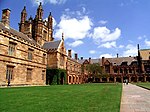
Blue Gene is an IBM project aimed at designing supercomputers that can reach operating speeds in the petaFLOPS (PFLOPS) range, with low power consumption.

The University of New South Wales (UNSW), also known as UNSW Sydney, is a public research university based in Sydney, New South Wales, Australia. It is one of the founding members of Group of Eight, a coalition of Australian research-intensive universities.
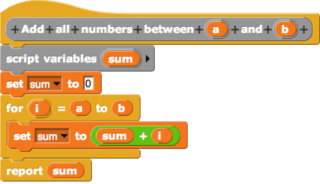
In computing, a visual programming language is any programming language that lets users create programs by manipulating program elements graphically rather than by specifying them textually. A VPL allows programming with visual expressions, spatial arrangements of text and graphic symbols, used either as elements of syntax or secondary notation. For example, many VPLs are based on the idea of "boxes and arrows", where boxes or other screen objects are treated as entities, connected by arrows, lines or arcs which represent relations.

The Summer Science Program (SSP) is an academic summer program where high school students experience college-level education and do research in celestial mechanics by studying the orbits of asteroids, biochemistry by studying the kinetic properties of enzymes, or genomics by studying antibiotic resistance. The program was established in 1959 at The Thacher School in Ojai, California. It now takes place on three astrophysics campuses, New Mexico Tech in Socorro, New Mexico, the University of North Carolina at Chapel Hill in Chapel Hill, North Carolina, and University of Colorado, Boulder in Boulder, Colorado, and two biochemistry campuses, Purdue University in West Lafayette, Indiana and Indiana University Bloomington in Bloomington, Indiana.
The United States of America Computing Olympiad (USACO) is an online computer programming competition, which serves as qualification for the International Olympiad in Informatics (IOI) in the United States of America. Primarily for secondary school students in the United States, the USACO offers four competitions during the academic year. Participants compete in four increasingly difficult divisions, each of which is provided a distinct set of 3 solvable competitive programming problems during each contest. Coding & submitting computer programs can be done in one of four languages: C, C++, Java, and Python. Competitors begin in the Bronze division, and advance through the levels by performing well in their current division.

Cupertino High School, colloquially referred to as "Tino", "CHS", is a four-year comprehensive public high school located near the Rancho Rinconada and Fairgrove neighborhoods of Cupertino, California, USA. The school serves mostly suburban residential and areas in eastern Cupertino, southern Santa Clara, and west San Jose.
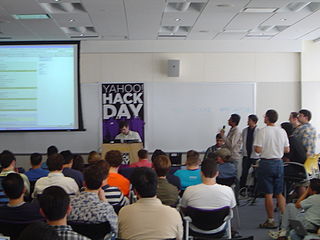
A hackathon is a sprint-like design event wherein computer programmers and others involved in software development, including graphic designers, interface designers, product managers, project managers, domain experts, and others collaborate intensively on software projects.
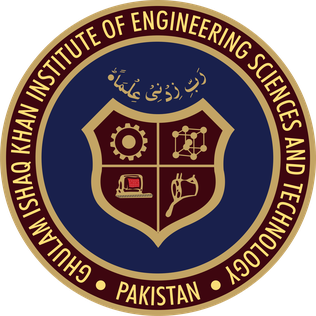
The Ghulam Ishaq Khan Institute of Engineering Sciences and Technology, is a private research university located in Topi, Khyber Pakhtunkhwa in Pakistan. The institute has a 400-acre (1.6 km2) campus that is located in the vicinity of Swabi District.
The Pennsylvania Governor's School for the Sciences (PGSS) is now the only remaining part of the Pennsylvania Governor's Schools of Excellence, a group of five-week summer programs for gifted and highly intelligent high-school students in the state of Pennsylvania. Carnegie Mellon University in Pittsburgh has hosted the program since its inception in 1982. Most recently, it has been directed by Physics Professor Dr. Barry Luokkala. Participants are required to be Pennsylvania high school students between their junior and senior years and are required to live in the dormitories for the full five weeks of the program. Admission is very competitive - approximately 500 of the most scientifically gifted students in the state compete for 56 to 60 slots in the program. The aim of PGSS is to promote interest in science rather than to advance students' knowledge in a specific area. The curriculum includes five "core" courses in Biology, Chemistry, Computer Science, Mathematics and Physics, and numerous electives. In addition to taking classes, students are required to participate in a lab course and a research-style team project. The emphasis is on cooperation, rather than competition - students are encouraged to both collaborate with other students on academic work and to interact socially. The Residence Life staff provides a number of structured social events to foster friendship and teamwork. There is at least one event per day and is advertised on the social calendar in the dorm lobby. For many students, the social development gained from the program rivals the scientific knowledge they acquire. The students leave the program with a strong bond; most attend an organized reunion the following year after the 4th week of the program.

FH JOANNEUM is one of the biggest colleges of higher education in Austria. It has about 5,000 students and about 750 employees. The main campus is located in Graz and there are two additional locations in Kapfenberg and Bad Gleichenberg. All three are situated in the province Styria in Austria.
The Columbia University Science Honors Program (SHP) is a science program at Columbia University that runs during the school year for tenth-, eleventh-, and twelfth-grade high-school students.

A computer cluster is a set of computers that work together so that they can be viewed as a single system. Unlike grid computers, computer clusters have each node set to perform the same task, controlled and scheduled by software.

James R. Curran is a computational linguist and senior lecturer at the University of Sydney. He holds a PhD in Informatics from the University of Edinburgh.
The School of Chemistry, University of Sydney is a school of the Faculty of Science at the University of Sydney.

The Faculty of Engineering is one of six faculties at the University of Waterloo in Waterloo, Ontario, Canada. It has 8,569 undergraduate students, 2021 graduate students, 334 faculty and 50,669 alumni making it the largest engineering school in Canada with external research funding from Canadian and international partners exceeding $86.8 million. The Faculty of Engineering houses eight academic units and offers 15 bachelor degree programs in a variety of disciplines.
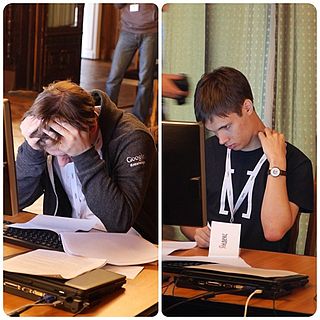
Competitive programming is a mind sport usually held over the Internet or a local network, involving participants trying to program according to provided specifications. Contestants are referred to as sport programmers. Competitive programming is recognized and supported by several multinational software and Internet companies, such as Google and Facebook.
CS50 is an on-campus and online introductory course on computer science taught at Harvard University and Yale University. In 2016, CS50 became available to high school students as an Advanced Placement Computer Science course. The on-campus version is Harvard's largest class with 800 students, 102 staff and up to 2,200 participants in their regular hackathons.
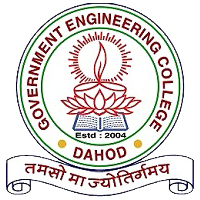
The Government Engineering College, Dahod is one of the 18 Government Engineering Colleges in Gujarat. It was established in 2004. It specializes in the fields of engineering and technology. The institute is recognized by the All India Council for Technical Education (AICTE), New Delhi. The college is administered by the Directorate of Technical Education in Gandhinagar, Gujarat, India, and is affiliated with Gujarat Technological University (GTU), Ahmedabad.

The Micro Bit is an open source hardware ARM-based embedded system designed by the BBC for use in computer education in the United Kingdom. It was first announced on the launch of BBC's Make It Digital campaign on 12 March 2015 with the intent of delivering 1 million devices to pupils in the UK. The final device design and features were unveiled on 6 July 2015 whereas actual delivery of devices, initially planned for September 2015 to schools and October 2015 to general public, began on 10 February 2016.















